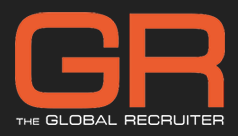Professional Passport has today issued a stark warning to recruitment agencies and hirers that, from April 2026, unless they pay their workers’ PAYE directly to HMRC, correctly quoting the umbrella’s PAYE reference, they will have no valid audit trail to protect themselves against PAYE liabilities to HMRC. This means they will be potentially liable to pay that PAYE all over again (even if already paid to the umbrella) – and thus, in effect, contribute towards the umbrella’s tax debts, even if those debts were generated by others.
The government’s new Joint and Several Liability (JSL) draft legislation was published in July’s Finance Bill as part of the Government’s mission to tackle non-compliance in the umbrella industry, but Professional Passport says the term itself, JSL, hides the true reality. What the legislation is creating is what Professional Passport is calling Collective Liability, where every agency and hirer using an umbrella risk becoming responsible for paying their own workers’ tax twice over, and so contributing to other PAYE liabilities of the umbrella.
Without an audit trail that proves each worker’s pay, with deductions as well as the resulting PAYE liabilities being paid to HMRC, agencies and hirers are automatically exposed. That means even if a business operates correctly, unless it can show that the PAYE liabilities in respect of its own workers have actually been paid to HMRC, it can still be forced to underwrite the mistakes or misconduct of other bad actors in the supply chain – whether that is an umbrella, payroll provider, or another agency. The only way in which the agency/hirer can avoid this is to pay the correct amount directly to HMRC, correctly quoting the PAYE reference of the umbrella.
Currently, arrangements work as follows: the end client pays the agency, the agency pays an uplifted rate to the umbrella, and the umbrella then calculates pay, sending net wages to the worker and payments to HMRC for PAYE and VAT. But, unless every agency using that provider is telling HMRC’s systems what has been paid, it is impossible to verify with certainty. Even if payslip checks and RTI verifications appear correct, agencies and hirers risk remaining exposed to Collective Liability.
If a shortfall arises, HMRC can apportion the debt proportionately across all agencies based on their workers and the associated PAYE relating to them, which is not showing to HMRC as actually paid. This applies regardless of any other verification or accreditation. Worse still, although agencies carry this Collective Liability, HMRC does not notify them when an enquiry in relation to the umbrella is opened. This leaves agencies in the dark for months, potentially increasing the liability and rendering indemnities worthless.
Speaking to an audience of agencies and end hirers in London, (Wednesday 27th August), Crawford Temple, CEO of Professional Passport, said: “The reality of JSL is that it may create Collective Liability. Every agency and hirer using an umbrella and not paying the PAYE in respect of its own workers directly to HMRC will find itself underwriting everyone else’s risk. Current systems offer no protection – at best, they provide an element of risk profiling. The only way to protect your business is to pay your workers’ PAYE directly to HMRC, correctly quoting the PAYE reference of the umbrella, and thus maintain a clear and detailed audit trail. Without this, you are working on a ‘trust me, it’s alright’ basis, and trust is not a defence against HMRC. Hirers must act now to change their processes, or they may be left carrying liabilities that were never theirs to begin with. The only way to remove the risk of underwriting everyone else’s liability in the chain is to remove yourself from that chain – by being able to show that the amounts for which you yourself are jointly and severally liable have actually been paid to HMRC.”
Professional Passport’s analysis shows that many payroll checks, accreditations, and verification tools currently available on the market will not protect against this risk. While these may provide visibility, they do not alter the fact that once a shortfall arises – whether from errors in payroll software, incorrect holiday pay, tribunal outcomes, financial distress, or connected-party arrangements – HMRC will spread the debt proportionately across all agencies and hirers linked to the provider concerned who are unable to show that the specific debts for which they are jointly and severally liable have actually been paid.
The only way for an agency or hirer to remove itself from the liability chain is to adopt a process that creates a verifiable audit trail showing that the PAYE due on its workers has been paid directly to HMRC.
Professional Passport has designed a new system in conjunction with an experienced software team to address the shortcomings that will serve to protect the industry. Professional Passport’s Three-Step Path to Protection will allow users to:
- Upload payment data through a secure system.
- Transfer net pay and VAT to the umbrella.
- Pay PAYE directly to HMRC, under the umbrella’s PAYE reference.
This two-payment process, supported by Professional Passport’s unique reporting and validation, ensures agencies will be able to demonstrate compliance and ring-fence themselves against Collective Liability. Without it, they remain fully exposed to the actions of others.






